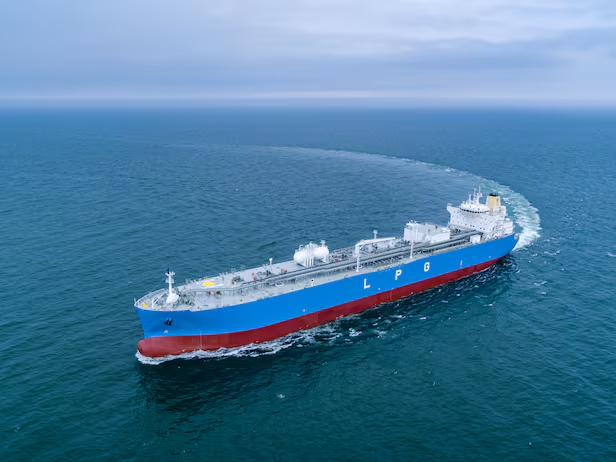The South Korean government recently decided to impose temporary anti-dumping tariffs of up to 38% on thick steel plates from China (used for ships and automobiles), which is expected to hit the South Korean shipbuilding industry.

Korean media reported that on February 20, the Ministry of Trade, Industry and Energy of South Korea (MOTIE) of South Korea announced that the preliminary results of the investigation show that there are “sufficient grounds” to suspect that Chinese steel imports have caused substantial damage to the domestic industry. In order to prevent possible damage during the full investigation, it was decided to recommend that the Ministry of Finance impose provisional anti-dumping duties of between 27.91% and 38.02% on Chinese steel plates. After the recommendation is reviewed, provisional duties will be imposed on Chinese steel plates within a maximum of 50 days.
Specifically, the MOTIE preliminarily determined the dumping margins as follows: 27.91% for China’s Baowu Steel Group, 29.62% for Jiangsu Shagang Group, 38.02% for Xiangtan Iron & Steel Co. and Xiamen ITG Holding Group, and 31.69% for other steel companies.
The move comes after South Korean authorities launched a dumping investigation against Chinese steel suppliers. Earlier, South Korea’s local steel companies filed a complaint that low-priced thick steel plates from China, the world’s largest steel producer, were flooding the South Korean market to the detriment of local steel makers.
In 2024, South Korea imported $10.4 billion worth of steel products from China, accounting for 49% of its total steel imports. About 70% of the Chinese steel plates imported by South Korea are used in the shipbuilding industry. Steel plates account for a large proportion of 20-30% of ship construction costs and are widely used throughout the ship construction process, including external plates and internal ship equipment.
The price of Korean steel plate is about 900,000 won (about RMB 4,570) per ton, while the price of Chinese steel plate ranges from 750,000 to 780,000 won (RMB 3,870 to 3,960) per ton. Previously, Korean shipyards effectively reduced production costs by using Chinese steel plates.

A source at a major shipyard said, “In the case of liquefied natural gas (LNG) carriers, for example, which cost about 360 billion won each, the production cost will increase by 7.2 billion to 10.8 billion won if the price of steel plates rises by 10 percent.”
South Korea’s shipbuilding industry believes that, compared with large shipbuilding enterprises, the use of Chinese steel plate higher proportion of small and medium-sized shipbuilding enterprises will be more impact. In the overall use of steel plate, Chinese steel plate in large shipbuilding enterprises accounted for about 20%, while in the small and medium-sized shipbuilding enterprises accounted for 40% to 50%. Small and medium-sized shipbuilders compete with Chinese shipyards for low-priced vessels, and if their cost competitiveness declines, it will become more difficult to receive orders.
Some analyses also suggest that the imposition of anti-dumping duties will not have a significant impact on South Korean shipbuilders, as they can benefit from the bonded factory system, which is effectively duty-free. Bonded factories refer to special customs zones where imported foreign raw materials can be used without paying duties and are exempt from taxes after the finished products are exported. Most areas of shipyards are designated as bonded zones.
However, the application of tariffs varies among companies depending on the customs clearance method for importing raw materials. HD Hyundai adopts the usage declaration method, which means that it suspends the payment of customs duties when importing raw materials and exports them after building them in the bonded zone, thus exempting the imported materials from customs duties.
Hanwha Ocean and Samsung Heavy Industries use the import declaration method to declare raw materials as general imports and pay duties. Previously, under the China-Korea Trade Agreement, the import declaration method was almost duty-free, but with the imposition of anti-dumping tariffs in the future, there will be no tax rebate when the ships are constructed and then exported, and the duty-free effect will disappear.
South Korean industry insiders believe that large shipbuilding enterprises that have been using the import declaration method could follow HD Hyundai’s example and switch to the usage declaration method to enjoy duty-free benefits. However, small and medium-sized enterprises in South Korea, which primarily focus on the domestic ship market and do not export their ships, have no choice but to bear the “bitter pill” of increased tariffs.
Another observation is that anti-dumping tariff measures on Chinese steel plates may lead to an increase in the number of orders received by Chinese shipbuilders in the long run. As shipbuilding costs rise due to higher prices of thick steel plates, South Korean shipbuilders will give up some of their orders, which may go to China.


